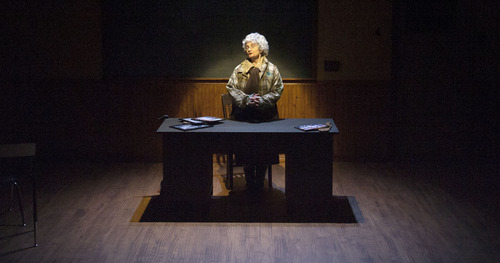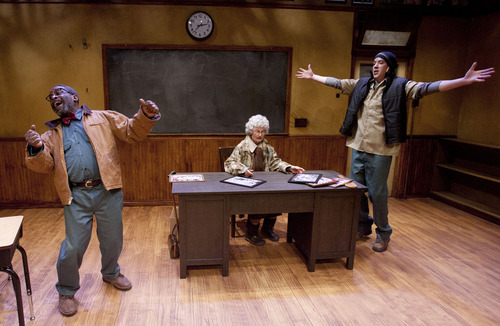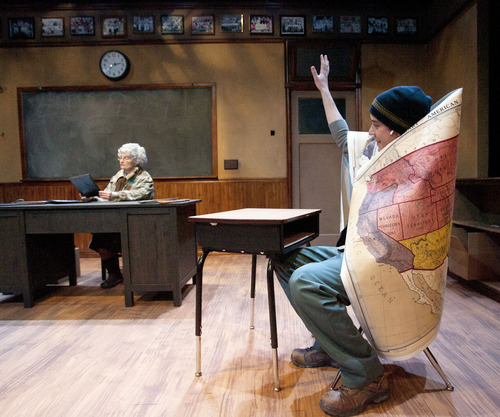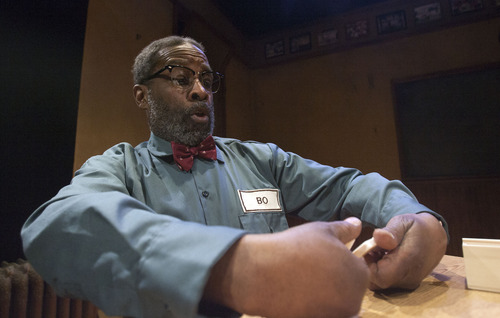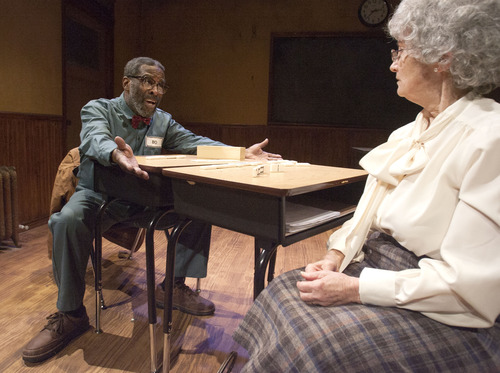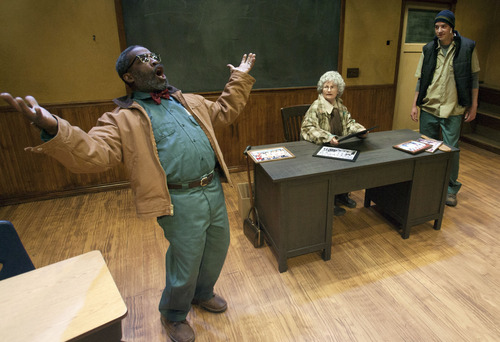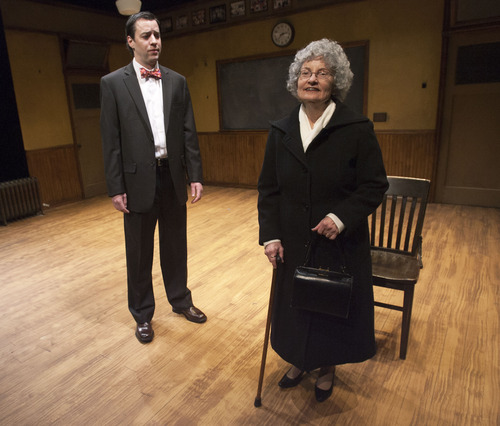This is an archived article that was published on sltrib.com in 2013, and information in the article may be outdated. It is provided only for personal research purposes and may not be reprinted.
Few themes are as fraught with misunderstanding as when white writers tackle the topic of race.
William Styron's 1967 novel The Confessions of Nat Turner, about the insurrectionist Virginia slave, won the Pulitzer Prize, against the protests of many black people who felt the book worked on too many myths and harmful stereotypes associated with black men.
In contrast, Athol Fugard won plaudits and high hosannas for his 1982 play "Master Harold … and the Boys," based in part on his own upbringing in apartheid South Africa.
Utah-based playwright Shawn Fisher makes no apologies for approaching the topic of racism in the best way he knows how — that is, through scenes and dialogue. He also holds no expectations or demands, and asks that audiences simply take "How to Make a Rope Swing" on its own terms. Fisher's been to this well before, confronting the racially charged topic of immigration in his 2010 play "Do Not Hit Golf Balls Into Mexico."
"Racism isn't a conversation one group of people should always keep to themselves when, historically, white people shoulder so much responsibility," Fisher said.
Fisher is an associate professor at Utah State University, where he also heads the graduate program in theater. His play was sparked by the image of a huge, severed trunk of an oak tree he saw more than 20 years ago during a visit to North Carolina. The remnant of the live oak was scarred black at its center from what he was told were fires stoked by slaves for cooking purposes almost 200 years ago. From that scar, the center expanded outward in rings.
"[The scar] didn't go away," Fisher said. "It just became deeper and harder to see."
The metaphor grew in his mind, too. It eventually connected with memories of his grandmother, who taught public school in Bridgeton, N.J., and was one of the first teachers asked to integrate black students into the classroom in the late 1950s after Brown v. Board of Education, the U.S. Supreme Court decision desegregating schools.
"South Jersey," Fisher reminds cast and crew of the play, was known to many African-Americans at the time as "the Mississippi of the North." That his grandmother also "held some fairly racist views" made writing the script even more intriguing — the kind of material, in short, that few playwrights could resist.
"How to Make a Rope Swing" opens Feb. 5 in a Salt Lake Acting Company world-premiere production directed by Adrianne Moore. Echoes of Fisher's grandmother's story have been shaped into the story of Mrs. Delores Wright, a well-meaning woman limited by her narrow understanding of a changed world, played by Utah actor Jayne Luke. Her denial and fear of the past collide against Arthur "Bo" Wells, the longtime custodian of Oakbranch Public School near Delaware Bay, where Wright once ruled as principal. Wells, who is African-American, wants the wrongs visited on his wife, who worked under Wright as a teacher at the school, acknowledged as such.
Wells, played by Glenn Turner, has been granted tenuous naming rights to the new school once Oakbranch is shuttered and demolished. But like many negotiations marred by race and misunderstanding, that right is in constant flux, even if it's a power Wells is determined to exercise.
"Suggesting is practically picking and still that's something. That is something, isn't it?" Wells asks.
The young white custodian Mick, played by Lucas Bybee, is Wells' somewhat clueless sidekick, a character upon whom Wells vents his frustrations. But Wells is equally honest with former principal Wright during the play's scenes of a power blackout during cold winter nights.
Director Moore said she was immediately struck by the lyrical quality of Fisher's play after first reading it. At the same time, it kept her guessing about what would happen next.
"I liked how it dealt with the difficulty of sounding out someone's true nature, the impulse to take the moral high ground and people's desires to judge," Moore said.
Turner, a New York City-based actor, is creating the character of Wells at the request of Salt Lake Acting Company co-producer Cynthia Fleming. He said he was impressed by the hills and valleys of Fisher's story — and the cast's open-minded approach to his suggestions to fleshing out details in the script.
African-American playwright August Wilson,Turner notes, was noted for never letting white theater professionals direct his plays. Working from Fisher's belief that race is a two-way conversation, Turner took the playwright up on his offer.
"If you know how to say 'I don't know' in approaching a difficult subject, you can do almost anything in theater," Turner said. "That's a difficult thing for some people in show business to admit."
Twitter: @Artsalt —
'How to Make a Rope Swing'
Utah playwright Shawn Fisher's play about racism is now receiving a Salt Lake Acting Company production.
When • Feb. 5-March 3. Wednesdays-Saturdays, 7:30 p.m.; Sundays, 1 p.m. and 6 p.m.
Where • Salt Lake Acting Company, 168 W. 500 North, Salt Lake City
Tickets • $23-$42. Call 801-363-7522 or visit http://www.saltlakeactingcompany.org for more information.


